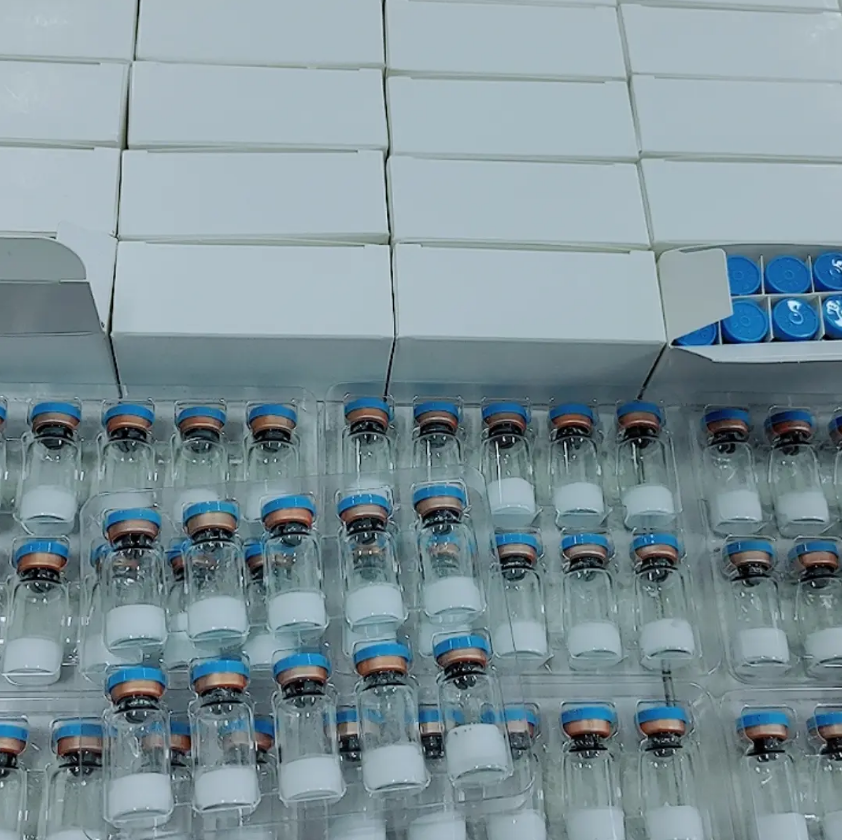Cell Stem Cell: The team of academicians wang Shuyu discovered the unique role of the star molecule BMI1 in tumor immunity.
-
Last Update: 2020-07-29
-
Source: Internet
-
Author: User
Search more information of high quality chemicals, good prices and reliable suppliers, visit
www.echemi.com
The !---- combination therapy based on pD1 blockers has been approved as a first-line treatment for head and neck squamous cell carcinoma (HNSCC)However, the response rate is still relatively low, and HNSCC patients will eventually relapseOn July 21, 2020, the Chinese Academy of Engineering's foreign academician Wang Shuangyu's team published an online paper entitled "BMI1 Inhibition Eliminates Residual Cancer Stem" on Cell Stem Cell, which showed that the combination of anti-PD1 and cisplatin treatments was performed on HNSIn contrast, the pharmacological and genetic inhibitory effects of BMI1 eliminated BMI1 plus CSCs and enabled PD1 blocking therapy, thereby inhibiting metastatic HNSCC and preventing HNSCC recurrenceIn addition to eliminating BMI1 plus CSC, BMI1 inhibition strongly induces the internal immune response of tumor cells by collecting and activating CD8 plus T cellsInstitutionally, BMI1 inhibition induces CD8 plus T-cell recruitment chemofactors by stimulating IRF3-mediated transcription and eliminating inhibitory H2A ubiquityThe results suggest that, in addition to clearing CSC, targeted BMI1 can also prevent tumor recurrence by activating the internal immunity of cellsCancer Stem Cells (CSC), also known as cancer initiation cells, are associated with the initiation, growth and metastasis of tumorsThere is growing evidence that cancer stem cells may be linked to drug resistance to cancer treatment and relapseIn order to completely eliminate tumors, cancer stem cells must be targeted on the theory of cancer stem cellsMoloney rat-leukemia virus insertion point 1 (BMI1) has been found to control the self-renewal and function of cancer stem cells in a variety of human cancers, including head and neck squamous cell carcinoma (HNSCC)BMI1 is the core component of the polycomb inhibitor yad complex 1 (PRC1), which is silenced by the monoubiquity mediated gene of histone H2AIn the heterogeneous transplanted naked mouse model, targeting BMI1 with the small molecule inhibitor PTC209 can eliminate the self-renewal of cancer stem cells isolated from human colorectal cancerIn spontaneous mouse models, invivage lineage was used to demonstrate that BMI1 plus CSC was responsible for the initiation, invasive growth and metastasis of HNSCCTargeting BMI1 plus CSC in collaboration with the chemotherapy drug cisplatin inhibits the growth of HNSCC, thus demonstrating that combined therapy can achieve better cancer treatment results by spreading tumors and eliminating CSCHNSCC is an invasive malignant tumor with a low 5-year survival rate and poor prognosis, a highly invasive and frequently transferred to cervical lymph nodesThe combination of procedural cell death protein 1 (PD1) blocking with chemotherapy has been approved for the treatment of recurrent or metastatic HNSCC and has significantly changed the therapeutic prospects of HNSCC The objective response rate was not very high, and the median response duration was relatively short, indicating that HNSCC may have inherent resistance to PD1 blocking and eventually relapse after treatment Since CSC is usually defined by using immunodeficiency mouse models, it is largely unknown whether pD1-based immunotherapy can target CSC There is growing evidence that CSC may secrete a variety of growth factors and cytokines to suppress the immune response and promote the microenvironment of immunosuppressive tumors It has been found that in CSC of glioblastoma and prostate cancer, the expression of complex molecules of antigen processing and major tissue compatibility complexes has been reduced However, PD-L1 showed an increase in the CSC of human HNSCC and other solid tumors Recently, studies have shown that CSC directly inhibits cytotoxic T-cell activity by expressing CD80 and mediates tumor resistance to pass-secondary cytotoxic T-cell metastatic immunotherapy These studies suggest that targeting CSCs may be critical to improving the efficacy of immunotherapy and preventing tumor recurrence The limited model system that can be used for CSC genetic spectrum analysis in the complete tumor immune microenvironment hinders the development of new treatment strategies Despite exciting advances in cancer immunotherapy, there is no preclinical or clinical studies showing that immunocheckpoint blocking eliminates CSC by activating anti-tumor immunity Recently, researchers established a Rosatd Tomato mouse model of HNSCC induced by 4-nthion-1 oxide (4NQO), which fully simulates the development and metastasis of human HNSCC and allows researchers to track the body lineage of BMI1-CSC in an undisturbed tumor immunonic microenvironment Using this model, the researchers tested whether a combination of PD1-blocked treatments could eliminate BMI1 plus CSC The study unexpectedly found that BMI1's pharmacological or genetic inhibitory effect not only helped to eliminate BMI1-CSC, but also enhanced PD1 blocking by activating the internal immunity of tumor cells, thereby inhibiting the growth of metastatic tumors and preventing tumor recurrence This preclinical study provides an important foundation for the development of new clinical trials based on the combination of PD1 blockers and BMI1 inhibitors
This article is an English version of an article which is originally in the Chinese language on echemi.com and is provided for information purposes only.
This website makes no representation or warranty of any kind, either expressed or implied, as to the accuracy, completeness ownership or reliability of
the article or any translations thereof. If you have any concerns or complaints relating to the article, please send an email, providing a detailed
description of the concern or complaint, to
service@echemi.com. A staff member will contact you within 5 working days. Once verified, infringing content
will be removed immediately.







